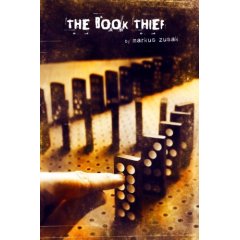Book Review by Zinta Aistars
# Hardcover: 256 pages
# Publisher: Shaye Areheart Books, 2006
# Price: $23.00
# ISBN: 0307336751
We Latvians are a small nation, but oh, we are a proud people! We are a nation beaten and battered by many wars over many hundreds, even thousands of years, but our culture and life sense still thrive: the Latvian language is one of the oldest in existence today, still actively used. Perhaps that is our greatest source of pride, then: we are survivors.
When Pauls Toutonghi's new novel,
Red Weather, came upon the literary scene, I was greatly pleased. I've been an avid reader in both languages - Latvian and English - since earliest childhood, but however many good books I read about the war and later experiences of Latvians immigrating to other countries and cultures, it was rare to come across a worthy tome in English. History books, yes, but far more rare, a good attention-grabbing novel that I could proudly share with non-Latvian friends.
Now, here's Pauls. With one Latvian parent, it is my understanding he has grown up in the Milwaukee area, active in the Latvian community and, having visited Latvia, is well-acquainted, one would suppose, with the culture and something of the nation's history. For these reasons, I read the novel with high expectation and excitement.
Pauls' writing abilities do not disappoint. Still quite young, he has already accrued an impressive publishing history, and has won the Pushcart Prize. His descriptions are lively, his storyline pulls us along, his sense of humor is intact.
And yet. The further I read, the more I realized, no, this was not going to be the book that I would pass on to Latvians I know, or to non-Latvians I'd like to invite a little more intimately into my multi-cultural world. The novel works as an entertaining read for non-Latvians, perhaps, but for those who do know the history and culture, well, not so much. I think my sense of humor is healthy, but I can't help feeling, for instance, that describing Latvians visiting the United States as being so dense as to put ketchup on every possible food, even bananas, craving to taste the American life, is taking the joke into the much less fun realm of ridicule. Or the Latvian mother as so eye-rollingly lacking in self-awareness as to walk Milwaukee streets wearing a Pabst hardhat with a beer can on it as if she were wearing a Parisian fashion statement. Surely not. I cringed in embarrassment. Humor is often built on slapstick and exaggeration, but would those who have no other knowledge of Latvians, perhaps never will have any other exposure than this novel, think this is what it means to be a Latvian? Bumbling fools?
Perhaps even more worthy of remark are some historic inaccuracies. Although this is a fictional work, even fiction must keep its feet firmly on factually solid ground before branching into fantasy. One such example is the allusion to Latvia's president, Karlis Ulmanis, and his attempt to escape to Finland during the Soviet invasion of World War II (see page 166). In fact, President Ulmanis held his place, broadcasting over the radio waves to the nation even as the Soviet tanks crossed the Russian border, keeping down the panic and requesting all to remain in their places, thus saving many Latvian lives. He was taken by force from his office by the occupying army, and was never seen alive again. Educated guesses are that he was deported to Siberia, where he died in a Gulag (concentration camp), but his body has never been found.
Having finished the novel, wondering at how very different the author's experience of his Latvian roots and culture were from mine, indeed from anyone I have known with Latvian roots and having gone through the immigrant experience, I wanted to think - hey, there's always the exception to the rule. If by 1989, when this story is set, any Latvian immigrant I or my family knew had established themselves in relative financial security (the fictional Balodis family still lived in squalor), had attained some measure of their new country's education and achieved something of their own immigrant American dream, then the Balodis family was certainly a lone exception to the rule. Nor could I imagine my own father, or fathers of my friends, being so easygoing about the political lines the young man in this novel, Yuri (Juris), crossed in his lovelorn relationship with a socialist girl (my own, and dare I say any typical, Latvian father, would have gone through the roof, to put it very, very lightly).
As a reality check, I shared
Red Weather with my parents, who shared it with several of their friends. Their reactions were the same. They expressed admiration for the author's skill, but also expressed a pained disappointment in the skewed image of Latvian immigrants to the U.S. The image the book leaves is of a people who are gullible, not particularly industrious, and rather dim-witted.
An opportunity lost. My subjective opinion, but I'm sure shared by more than a few of my countrymen and women.



